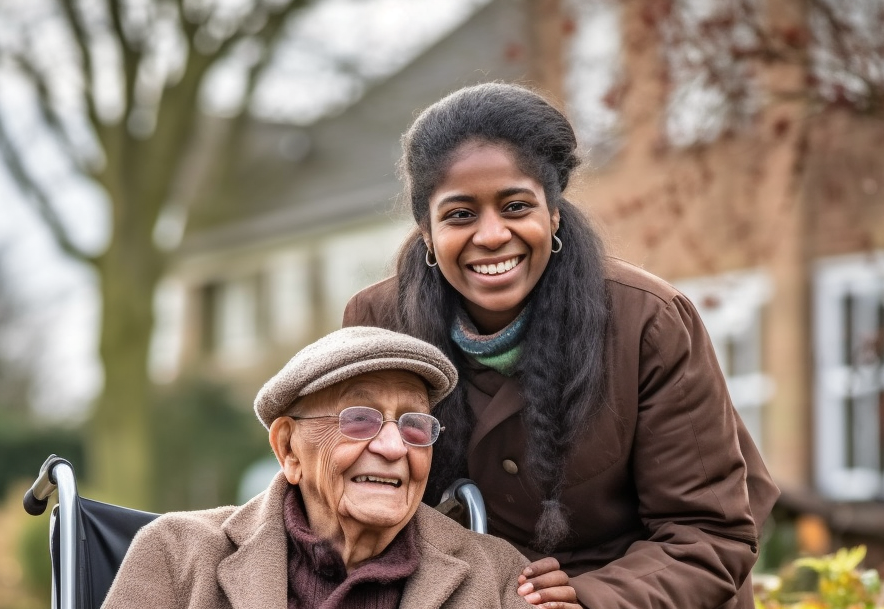- 29 May 2023
- Posted by: bright
- Category: Health & Wellness

As we approach the twilight years of our lives, accepting the inevitability of death can be a daunting task. However, in many instances, we are left with no other alternative but to confront this reality and make the necessary preparations.
End-of-life care is integral to those embarking on the final leg of their life’s journey. The primary objective is to uphold the quality of life for as long as possible, ensuring the utmost comfort of the patients.
Here are a few ways caregivers and loved ones can help sustain an excellent quality of life during these challenging periods:
Pain Management
Pain management strategies are essential to alleviate any discomfort related to chronic or acute conditions, providing much-needed relief. Depending upon individual requirements, these strategies could encompass a range of methods, from physical therapy exercises to alternative treatments such as acupressure sessions.
Compassionate Caregiving
Having someone who genuinely cares about your well-being can provide immense comfort, especially during the final moments of life. Therefore, kindness and compassion are indispensable during these times. Caregivers must perform their roles with empathy, understanding the emotional states of patients and addressing their physical needs.
Effective communication can often serve as a tool for compassionate care, creating a safe environment where patients can express their concerns and feelings without the fear of judgment. Sometimes, simply being present at their bedside can significantly enhance their mental well-being, even when there is little else that can be done.
Patient-Directed Goals
The linchpin of end-of-life care is focusing on the needs of the patients, rather than merely concentrating on medical objectives. Some patients might prioritize maintaining functionality over complete pain relief, while others may wish to remain alert until certain family members visit before they transition into unconsciousness. Understanding these values assists clinicians in navigating the difficulties in keeping individuals as independent as possible and offering supportive therapies like palliative care. This approach helps loved ones alleviate any guilt associated with making decisions based more on comfort than curing underlying conditions.
Dignity and Respect
At this juncture of a person’s life, respect for all their accomplishments is imperative. Every individual deserves to maintain their dignity, irrespective of their dependence on others. This respect extends to maintaining personal hygiene standards, such as bathing patients, changing bed sheets on time, and ensuring clean clothing for both caregiver and patient. Adherence to these standards of human decency should never be overlooked, regardless of professional hierarchies.
Honoring End-of-Life Wishes
End-of-life preferences are intensely personal, meaning a ‘one size fits all’ approach doesn’t work when navigating the unpredictable end-of-life phase. Advanced Directives allow individuals to express critical wishes about ongoing care strategies if their condition deteriorates rapidly or progressively. Collaborating with interdisciplinary teams within healthcare organizations can help facilitate a smoother transition into these arrangements, providing clear guidance for beneficiaries if medical intervention such as palliative sedation or ventilator withdrawal becomes necessary.
Holistic Approach to Care
In conclusion, end-of-life care is a vital component of the healthcare sector. Despite the difficulties, healthcare professionals must prioritize holistic strategies aimed at improving the patient’s overall quality of life during this stage. Methods focused on pain management and compassionate caregiving provide comfort when symptom management becomes increasingly challenging due to mental fatigue. An open dialogue facilitates ensuring maximum dignity without sidelining any crucial aspects, such as psychological needs or spiritual desires.
Interdisciplinary teams offer invaluable resources for personalizing relevant strategies under the prevailing circumstances. Often, empathy supersedes the intricate knowledge domains associated with traditional treatment methods. This approach is more akin to hospice care, which is generally sought after in this situation by caregivers who dedicate themselves until the patient’s final breath. They make significant contributions throughout their professional careers, offering love and hope in these testing times. Such efforts honor patients’ end-of-life wishes, while maintaining the highest possible dignity and respect throughout their last journey.
The aforementioned strategies provide an avenue for enhancing the quality of life, even in moments when hope seems scarce. They allow for a deeper understanding that brings more meaning to relationships during these critical phases. By facilitating open and honest discussions, healing can occur, and bereavement counseling can be effectively used to help manage post-event occurrences. By ensuring personal goals are communicated and remembered, families can create cherished memories. These strategies equip them with acceptance, gratitude, and the ability to achieve closure on their loved one’s unique legacy. As long as everyone involved communicates openly, misunderstandings can be avoided, ensuring the legacy remains intact for future generations.

